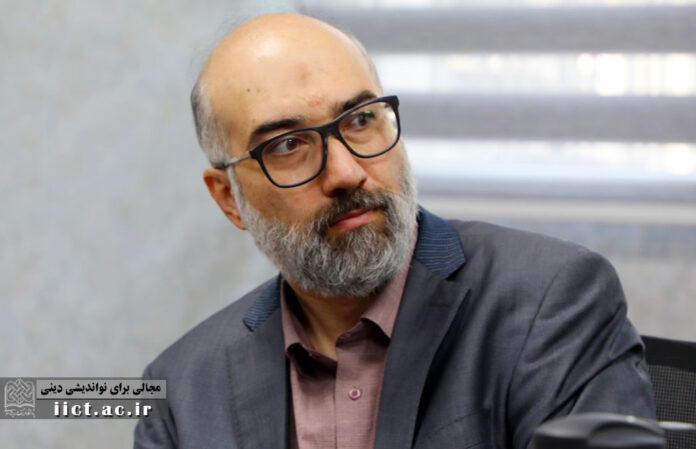According to the Public Relations Department of IICT, Dr. Mohsen Radadi, a member of the Institute’s Islamic Revolution Studies Department, wrote a note on public participation and enhancing the quality of governance in complex situations.
The Supreme Leader has repeatedly emphasized, particularly in his meetings with student and youth medalists, that the primary importance lies in the participation of the people in elections, rather than who wins the vote. This perspective appears to be completely rational, logical, and aligned with the current needs and circumstances. In this note, I aim to present key reasons within the framework of political philosophy for why “inclusive participation” should take precedence over “who gets elected.”
Consider two hypothetical scenarios to understand the value of high participation ( in elections) :
In the first scenario, there is no electoral system, and only a select group of devout individuals, elites, university and seminary experts, and top economic, political, cultural figures, and psychologists have the right to elect the president. In this case, the president chosen would likely be the most devout and expert individual.
In the second scenario, elections are held with over 90% public participation, resulting in a president elected by people of various educational levels, understandings, and emotions. Here, most participants are not professionals, and their choice might not reflect the highest quality election. Additionally, many might vote under the influence of emotions and media, and thus, the most qualified, pious, and competent individual might not be elected.
Which scenario is better for the country? Which president can govern the country more effectively?
If you ask Plato or Farabi, they would choose the first scenario because they believe the country’s executive power should be in the hands of the best individual, and the general public is not capable of selecting the best person.
However, the leaders of the Islamic Revolution (Imam Khomeini and Imam Khamenei) seemingly believe in the second scenario, as evidenced by their insistence on public participation in electing the country’s executive head. The reasons that make this view more accurate, and why the “most accepted” person is considered more successful in governing the country than the “best” person (i.e., the most expert, efficient, and pious), are as follows:
1.Decision-Making in Complex Situations
In a simple and straightforward society, decision-making is easy, and experts can propose effective solutions by examining various aspects of an issue. However, in a complex situation (chaos), the influencing factors are so numerous that common patterns and conventional expertise cannot provide solutions. In such cases, the best approach is to find innovative, unconventional solutions. Achieving these solutions requires a precise and field-based understanding of the problems, challenges, and capacities within society. The “most accepted” individual aligns better with the people’s spirit and the societal situation and is thus more capable of comprehending the complex situation. In contrast, a specialist and pious individual relies on academic knowledge and has a limited understanding of the situation. Broad public participation helps elect someone who resonates most with the public’s emotions and perceptions. This person may not necessarily be the best and most qualified but is certainly the most accepted, as the public can relate to them better. The more participants there are, the closer this person is to the general populace’s mindset and understanding. Therefore, the more votes this person receives, the better they can empathize with the people.
2.Attracting Greater Public Participation and Engagement
The country’s issues and problems have grown to such an extent that solving them is beyond the government’s capacity. No individual, no matter how capable and knowledgeable, can tackle these immense challenges alone. Solving today’s societal problems necessarily requires public cooperation and participation. A president who relies solely on their expertise and the abilities of government officials to resolve issues will inevitably become disillusioned and discouraged. A president who acknowledges the need for public participation can better manage and resolve issues. Given this, if the elected individual garners a significant number of votes, they can expect to benefit from public support and participation in advancing their programs during their presidency. Conversely, a low voter turnout, even if it leads to the election of the “best” individual, cannot guarantee the public’s support for the elected president. In other words, high electoral participation promises broader public involvement during the presidency, likely resulting in mutual trust between the people and the government. This “social capital” based on public trust is incomparable to any other resource.
3.Formation of Collective Rationality
As Rumi says, “Intellect gains strength from another intellect…” and “Consultation gives insight and awareness / Minds support each other.” It is an accepted principle that collective thinking and consultation lead to better choices. An individual’s thought alone has weaknesses and can be influenced by biases and emotions. However, when several people think together, individual weaknesses, biases, and emotions are compensated by others’ strengths and logic, resulting in a complete rationality through collective decision-making. The more people involved, the less likely biases and emotions will affect rationality. Therefore, if a president is the result of 60 million people’s participation, they are undoubtedly chosen more wisely than a president elected by the consensus of 20 million. This is because three times as many people have thought about the issue, and three times the mental effort has been invested in selecting the best option.
In this situation, “quantity” transforms into “quality.” An individual chosen through a high participation electoral process is the best person to govern the country and will make the best decisions, even if they are not the most specialized or pious.




